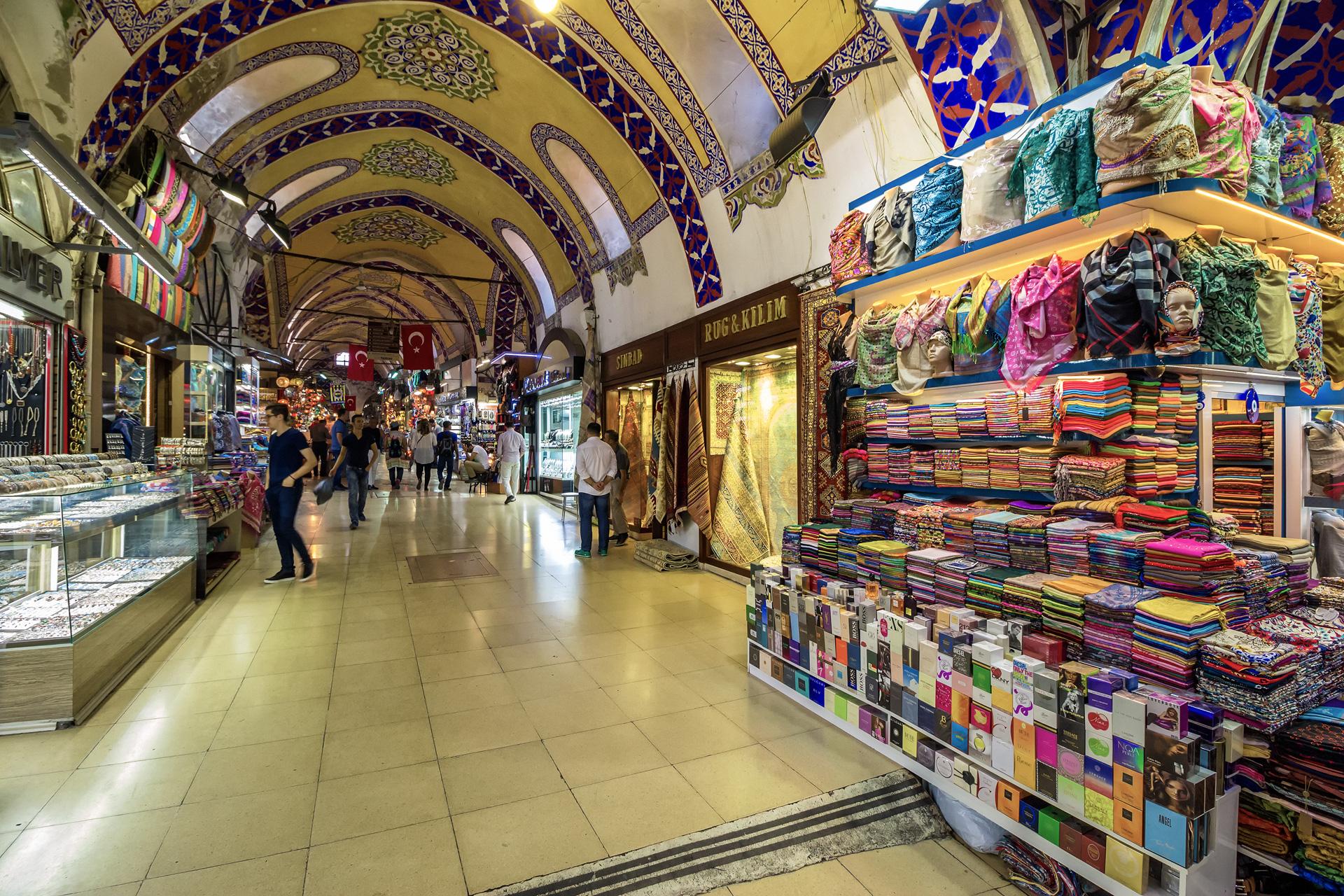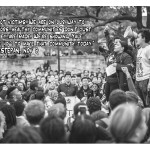by Alina Yaman
The call to prayer is currently sounding from the mosque nearby. I’m at my desk in my dorm, my books in view and my bulletin board ready to be used whenever I’m feeling inspired. A bag of peaches and nectarines is sitting by my window, open to let in the evening air, carrying the sounds of Istanbul with it. In the more crowded areas of Istanbul, you can hear multiple calls at once, echoing across the city. The call to prayer makes me feel at home, in a way I’m only starting to understand.
—
This summer, I spent two months living in Istanbul, learning Turkish, and visiting my father’s family on weekends. The above is an excerpt from a journal entry I wrote on June 16th, 2016. I am only Muslim by birth, and I have never practiced any religion regularly. The call to prayer, however, has always been a call home for me. In all my disbelief of finally returning to Istanbul after eight years without visiting, the ezan’s melodic recitations grounded me. Sounding from the minaret five times a day, the muezzin’s voice almost falls into the background in the midst of street vendors yelling out prices, taxis recklessly speeding by, and the chatter of busy cafes whose gossip and laughter spills out onto the sidewalks. Every time the low, rhythmic drawl sounded from the local mosque, my ears were at ease. My soul, however, awakened. Five times a day, the sound fills a space that otherwise remains empty.
Exactly a month after I wrote this diary entry, I sat in that very same room, counting the minutes as the ezan blared at odd hours of the night, interspersed between the sounds of low-flying jet planes, gunshots, and sonic booms. I followed the news obsessively, watching the Turkish military fail to gain power in an attempted coup d’état. Turkey’s president revived a war tactic last used in Ottoman times, calling upon muezzins across the country to ask Turkish citizens to demonstrate their resistance to the coup attempt. The call to prayer had been transformed into a call to the streets.
Most Turks, regardless of their feelings toward Erdogan, preferred the current situation to that of military rule. In the midst of a political operation enacted in times of desperation and concern surrounding the degree of power of incumbent leaders, President Erdogan relied on Turkish citizens to carry the burden of resistance. Amidst tanks, bombings, gunfire, fighter jets, helicopters, and shutdowns of major transportation operations, citizens were being asked to place their bodies under red flags in the streets, in the name of democracy.
The night of the coup attempt felt incredibly surreal. In the following weeks, I spent many sleepless nights listening woefully for the muezzin’s voice. It was no longer news to hear calls at irregular hours. As if it had been years since I wrote that journal entry, I reminisced about the days where these recitations struck a chord deep in my chest, filling me with warmth and a sense of comfort. One particularly vulnerable night, I wept to the ezan’s call. I wept, feeling the weight of a million souls, pulled to attention by power, greed, and fear. I wept for all the people in desperate need of prayer, whose energy was instead being focused on political strife. I wept for all those who found comfort, groundedness, and connection to the universe in the call to prayer, who now were asked to see it as a call to duty, a call to protect something they have almost no power over. I wept for all those who felt compelled to follow God’s word, and were instead asked to follow the government’s. Whether they agreed to do so or not, I wept for my people.
In the last few weeks of my stay, I made an effort to understand how the tragedy of this twisted use of religion lies at the very same source as its beauty. I felt the weight of how precious spirituality can be. I learned that full submission to fate, the universe, Allah, God, whatever you want to call it, is a beautiful and noble endeavor. Looking back to the journal entry I had written at the beginning of my stay, I was shocked to see how much more those words resonated with me after everything that happened in those two months. The final paragraph of that entry read as follows:
The feeling of home, to me, is something divine. I’ve found home in the moments where I feel like I am a part of something bigger. The moments, the places, the people, the food, the feelings, the experiences with which I identify strongly, where the connection feels like a two-way street. I am a part of its creation, or becoming, and it is a part of mine. And it’s almost never a one-time thing – it’s a continuous force that shapes my existence, and reminds me of my place in the universe.
Through prayer, Islam asks you to step back, place yourself in the world, practice gratitude, allow yourself to unravel – let beauty and awe illuminate the little moments. I may have left Turkey with a bitter taste in my mouth, but I carry it with me all the same. I was grateful to see how, despite everything that happened, life went on. The peaches at the Saturday market were juicy as ever. Middle-aged men with large bellies continued to quietly claim their spots along the river every evening, fishing rods in hand. Friends and families gathered on balconies, greeting passers-by as they sipped tea or shared a cigarette. On a good day, the call to prayer followed its regular schedule – five times a day, to the rhythm of the movement of the sun.


